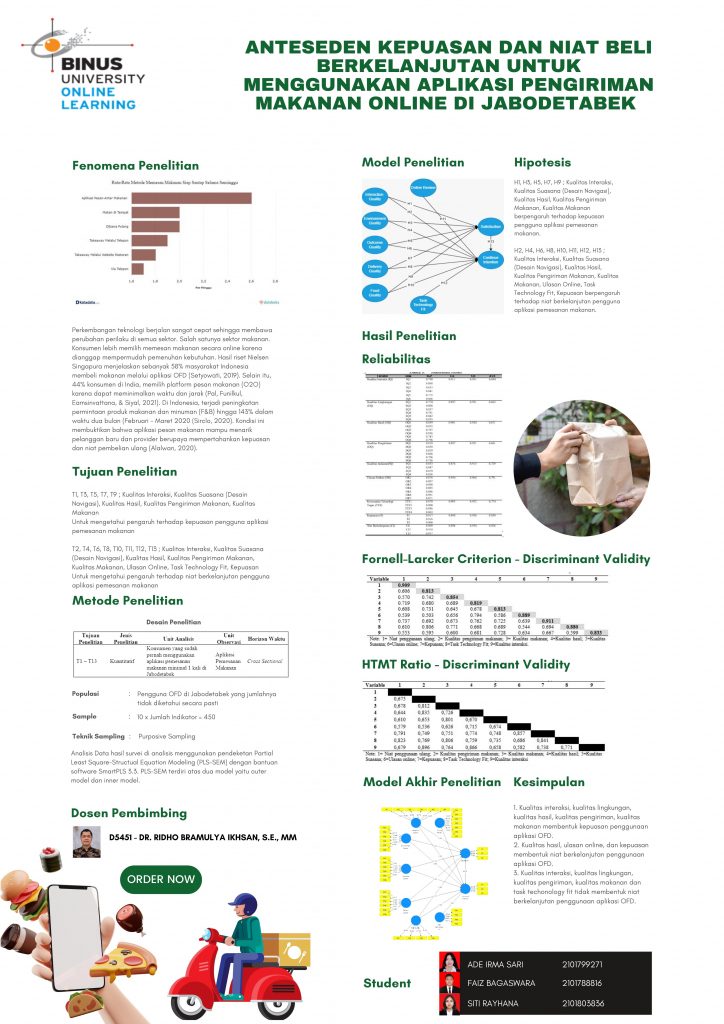Anteseden Kepuasan dan Niat Beli Berkelanjutan Untuk Menggunakan Aplikasi Pengiriman Makanan Online di Jabodetabek
This research is motivated by the rapid development of digital technology which influences consumer behavior, including the behavior of ordering food online through delivery apps. This phenomenon is illustrated with data showing various factors that affect customer satisfaction and sustainable repurchase intention among OFD (Online Food Delivery) users in the Greater Jakarta area (Jabodetabek).
Research Objectives:
-
To determine the influence of interaction quality, environmental quality, ambiance quality (navigation design), outcome quality, delivery quality, food quality, and price quality on customer satisfaction with food delivery applications.
-
To find out the influence of customer satisfaction on the sustainable repurchase intention of using food delivery applications.
Research Method:
This study uses a quantitative approach with SEM analysis based on Partial Least Squares (PLS-SEM). Data were collected through an online questionnaire from 450 respondents who are OFD users in Jabodetabek.
Key Conclusions:
-
Interaction quality, environmental quality, ambiance quality, outcome quality, delivery quality, food quality, and price quality have a positive influence on satisfaction.
-
Satisfaction has a positive influence on the intention to repurchase sustainably.
This research is closely connected to several of the United Nations Sustainable Development Goals (SDGs). To begin with, it addresses SDG 9 (Industry, Innovation and Infrastructure) by exploring how digital innovations influence consumer behavior through the use of online food delivery platforms. By identifying the factors that shape customer satisfaction and foster repeat purchase intentions, this study underlines the need for strong digital infrastructure and creative service solutions that cater to the changing demands of urban consumers.
In addition, the study aligns with SDG 11 (Sustainable Cities and Communities) by encouraging smarter consumption habits in urban areas. Online food delivery services can help ease traffic congestion, cut down on unnecessary travel, and offer added convenience for city dwellers. Gaining insight into how to boost user satisfaction and customer loyalty can support the development of more sustainable and efficient urban lifestyles.
Lastly, this research supports SDG 12 (Responsible Consumption and Production) by showing how better service quality and stronger consumer trust can promote more responsible resource use in the online food delivery sector. Greater satisfaction and repeat orders can streamline supply chains, help reduce food waste, and motivate businesses to uphold high standards for food quality, delivery efficiency, and fair pricing.



Comments :